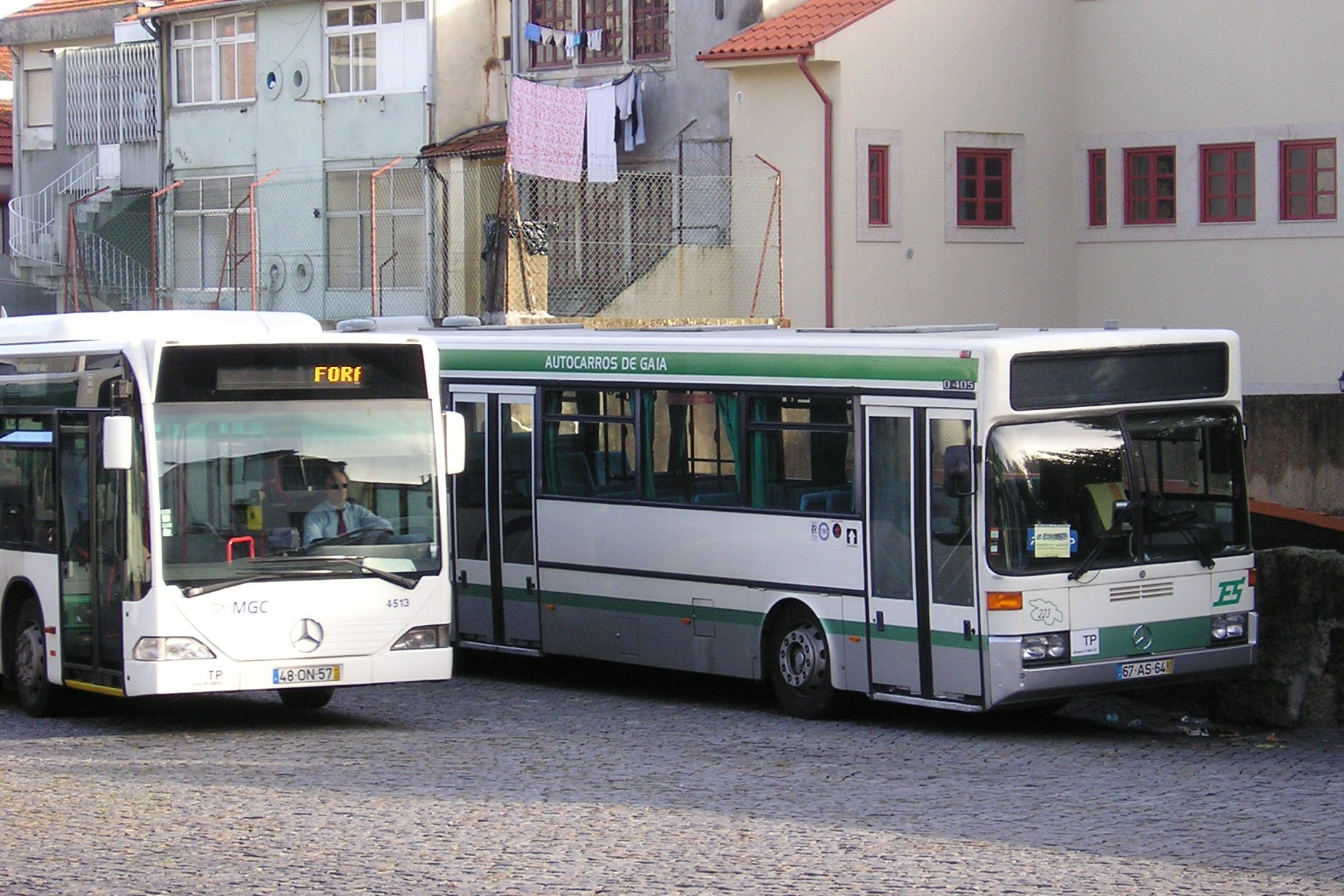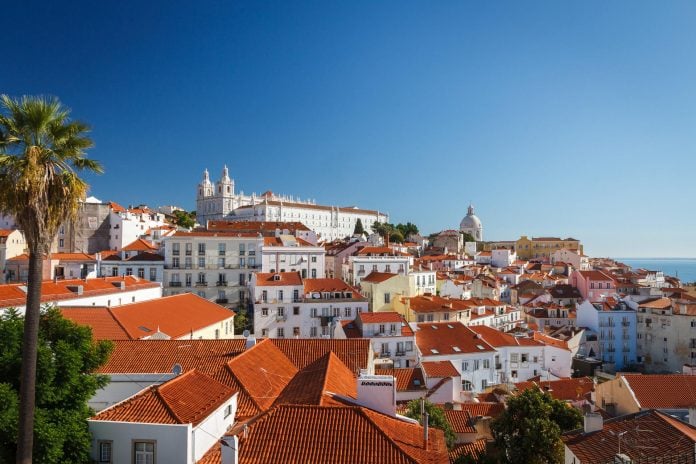Although the positives outweigh the negatives, living in Portugal is not perfect. While many travel bloggers out there only highlight the pros of living in Portugal, this does not reflect the whole reality. The thought of 300+ days of sun and incredible food might have made you forget to consider the downsides of moving to Portugal.
Whenever making such a life-changing decision, it is vital to consider the possible struggles you might face in a new country. Luckily, we have selected our top 9 downsides to living in Portugal to help you prepare accordingly.
1. Low wages in Portugal
A major downside to living in Portugal is finding a well-paying job. Whether you are making minimum wage or the average salary, do not expect to make a lot of money.
In 2022, the national minimum salary in Portugal is €705 a month before tax. This value refers to 14 salaries, including the two extra payments on Christmas and summer. If you look at 12 salaries, it amounts to €822.50.
If you receive the minimum salary, after paying income tax, you receive around €630. Those working in restaurants, hotels, stores, cleaning, and more tend to receive the minimum wage.

Although Portugal has a relatively low cost of living, this salary makes it impossible to rent an apartment in cities such as Lisbon and Porto and live comfortably.
According to the National Statistics Institute, the average gross monthly salary is €1,361. As Portugal has progressive tax, those receiving the average salary will pay more. After paying income tax and social security, you will be left with €960.
However, if you are getting a top-level job, you can still make very good money. The best salaries are given to top management positions in Lisbon. For example, a general manager can make between €110,000 and €170,000.
Expat Guide to Working in Portugal
2. Slow public transport in Portugal
Don’t get me wrong – Portugal has recently improved in this space in the last five years. However, if you have lived in places like the Netherlands and the United Kingdom, don’t expect the same quality.
While major cities like Lisbon and Porto have a more modern subway and tram system, many others only rely on bus routes. These often only come in long intervals and arrive late. If you live in the interior of the country, waiting for an hour for the bus is commonplace.
Unfortunately, you might also be shocked that a lot of information is unavailable online. In many cities, you can’t purchase tickets online or check schedules in English. Always make sure to carry cash with you as the bus driver might not accept an ATM card.
While many argue transport is cheap in Portugal, this is not always the case. For example, in Cascais and Sintering, buses tend to be a lot more expensive with 15-minute one-way rides costing almost €3 sometimes.

3. Competitive Portuguese housing market
Property prices in Portugal have been rising since 2014, with many areas seeing a 10% rise between 2020 and 2021.
According to Bloomberg, the increase in property prices can be attributed to strong demand and a housing shortage. This is true, particularly in Lisbon, where there is a high demand from both local and international investors.
Due to high demand and a housing shortage, houses are more expensive today. This can make it difficult to purchase a home in Portugal’s competitive housing market. Getting a mortgage could be tough if you are on minimum or even the average wage.
While negotiation is always on the table in the Portuguese housing market, the margin for negotiation is becoming smaller.
Expats often overpay for real estate in Portugal – driving prices further up. If you are looking to buy in Portugal, you must do some market research to establish whether the price is fair. Don’t compare the house prices in Portugal to your country of origin and argue they are affordable.
However, this downside is also an upside for those with capital looking to invest. The strong growth of the housing market means that investors are prone to getting a safe return on their investment in the long term.

International Guide to Real Estate in Portugal: Buying a House in Portugal
4. Shady landlords: Lack of rental contracts in Portugal
Just because something is illegal does not mean it’s not socially acceptable in Portugal. Unfortunately, many locals and expats get tricked into not signing an official rental contract.
Landlords do this because they do not want to declare their rental income with the tax authorities. Without a contract, they do not need to pay tax for non-tourism properties, which is set at 28%. The tenant will usually also get a nice discount on the property.
It might seem like a win-win situation initially, but trust us, the extra money is not worth it.
Without a rental contract, tenants are left with no legal protection against rent increases and will technically waver their tenant rights (although this is not always the case legally). It’s also especially bad for foreigners who need a rental contract for their residency permit.

Guide to Renting an Apartment in Lisbon
5. Portuguese bureaucracy and long waiting times
The Portuguese slow pace of life is not always rainbows and sunshine. With this relaxed mindset comes bureaucracy and long waiting times. If you have ever been in contact with SEF for a visa, we don’t need to remind you.
Especially in public services, it can take a while to get things done. If you are at an SNS health center, expect to wait a few hours to be treated. Waiting for an important document such as a driving license? It will arrive when it arrives – the Portuguese way of thinking.
Even if you are taking care of a simple task, expect to have to fill out useless forms and having to call various entities. Bureaucracy is a part of Portuguese society, although it is also present in other European countries like Spain.
6. No AC in Portuguese houses
If you’re an American moving to Portugal in the summer, time to purchase some fans. Most houses do not come equipped with air conditioning. Only 7.9% of homes nationwide have AC.
Temperatures can get quite high, particularly during the recent heat waves they reached over 40 degrees Celsius.
However, homes in Southern Portugal have the most AC units. 13.2% of homes in the Algarve have air-con, followed by Lisbon and Braga.
While more common than AC, many houses in Portugal do not come with central heating, particularly older homes. You will have to add heating yourself, which can be very expensive depending on the size of your home.

7. Toxic work culture in Portugal
Point #7 is debatable and depends on your country of origin. Too many Portuguese, the work culture is just fine. However, for those coming from countries like Finland and the Netherlands, the work culture is beyond toxic and unhealthy.
This might come as a shock as Portugal has been celebrated in the media for its incredible labor laws. Unfortunately, these are not always enforced.
Although companies are oftentimes lenient with punctuality, employees tend to work long hours. Despite a maximum 40-hour work week, it is many times expected that employees work longer hours. Many only arrive home after 7 PM or later, losing time with their families.
In fact, Portugal is the top European country where employees are experiencing the most burnout, with Greece and Latvia coming next.
Employees work more hours compared to other European countries, and the percentage of reporting risk factors affecting mental well-being at work is 38.6%.

Portugal’s Not So Perfect Labor Laws and Workers’ Rights
8. Learning Portuguese
One thing is if you are relocating for a year or two, but if you are planning a long-term move to Portugal, learning the language is essential. While in Lisbon and Porto you will be able to navigate everyday life in English, this isn’t the case everywhere else.
You’ll have a hard time outside the main cities if you don’t speak Portuguese. Even if you live in Lisbon and Porto, you could get charged more for certain products if you only speak English, even though this is illegal.
Portuguese is complex. As a highly gendered language with difficult verbs to memorize, you must put in the time and effort.
Although Portuguese is a hard language to learn, it will be useful even if you move away. Over 215 million people speak Portuguese worldwide, making it the 6th most spoken language.
9. Expensive phone data in Portugal
Portugal is known for its relatively low cost of living. However, this isn’t the case for all products and services. If you’re used to enjoying unlimited phone data for a cheap price tag, you won’t find this in Portugal.
Most people opt for limited data packages due to the high cost. 1GB will cost you around €10 which, let’s be honest, isn’t enough if your favorite pastime is scrolling through TikTok.
An unlimited data package could cost you anywhere between €30 and €40 a month. This is quite high in comparison to other European countries like the Netherlands where it would only cost you around €20.




The legal system is slow and inefficient. I waited 8.5 years for a case of maladministration against a Council to be heard
This article was nothing new to me. Unfortunately I suffered the same fate of enduring the “Portuguese ways” for 30 years of my life. Luckily for me that I am a Canadian citizen by birth and decided to come here. Portugal is a great place to vacation! Don’t get me wrong, but that is it! Everything is slow and often old and cheap…
215 million Portuguese speakers? Brazil alone has more than that.
If you content yourself with conversing in Spanish, yet being answered in Portuguese, you’ll learn the language quite quickly.
brazilians cant understand portuguese people, south american spanish sounds closer, despite we write the same.
Don’t be so lazy. Learn Portuguese; it is their country after all.
You’re right. Respect the country by learning the language.
Well..everything is true ! But unfortunately the main downside is missing ! Maybe because the author has to be politically correct ? Anyway every expat that is leaving in Portugal will tell you the same : the Portuguese are a little bit racist and intolerant with foreigners ! They are gentle but racist ! And ..sorry..but that’s the truth ! You like or not..
I don’t feel I have experienced racism Robert. On the other hand my local council told me they believe immigrants are taken advantage of my businesses. We are often seen as “cash cows”.
I’ll have to agree with Robert.
I know what you mean. It’s a strange racism or xenophobia. Some would treat foreigners very well, above the locals and some vice versa. Some shops may serve locals even if they came into the shop after the foreigner and some shops will go out of their way to help foreigners and expats.
Number 9 is untrue. I pay 25 euros/month for an unlimited 5G data package and on top of that in the same plan I get 0 addition in several European countries. I ve already used it I the Netherlands, Poland and Hungary and it was like I was in Portugal. In my point of view it is great cost benefit.
That sounds great – can you provide more detail on your plan – who is the provider
Yes, the slow pace of life stems from the Portuguese psyche of being happy to live in the past, of being comfortable with old ways, not much complaining if things go wrong, all to do with the saudade temperament inbuilt in their lives. They all inwardly long to get back to their past which they know shall never return.
Damn, looks like the Portugal is not a “heaven” for relocation and for change a citizenship. I have in Russia base salary about 1.4k euro after all taxes, and extra money about 4k euro per 3 mount . Analytical chemistry. Not sure in Lisbon exist a “food safety lab” with the same salary 🙁 I hope the war will stop soon…
All very interesting comments. I’m a Canadian, currently living in Canada and of Portuguese ancestry. I’m planning to move to Portugal in the near future. I’m aware of the two differences regarding Portugal & Canada. I want and need to leave Canada and reside in Portugal. If there are nine negative points with respect to Portugal then there are triple that amount living in Canada. Living in Portugal is an adjustment that is well worth the effort.
The Portuguese do not live in the past neither do they yearn to live in the past. They adjust to changes in life style brought about by recent rapid technological innovation as well as recent rapid immigration by takings a laid back and pragmatic approach who tend to “just get on with it”. As a Portuguese person with dual nationality who has resided in the UK for the past 55 years I am often taken aback with with the pace of economic and technological development every time I visit my birth country. I would agree however with the comments on the work culture. Yes in general people work longer hours and some are exploited particularly those in lower paid jobs. The upside to this if there is one is that generally speaking the Portuguese are a stoic hard working people with a very strong work ethic. I also agree that racism is still present and this needs to be tackled by the Education and other social systems. As for bureaucracy I have experienced the opposite for example when renewing my ID card or applying for a travel pass.
By and large the Portuguese are a humble and gentle race in their dealings with people from other nations.
hard working people with a very strong work ethic…. hahaha
Thank you for this article. I appreciate hearing a balanced description instead of getting a commercial about how everything is ‘wine and roses’ in Portugal. It is a beautiful country and it is infinitely better than when I left as an immigrant over 50 years ago. Education has certainly improved for the best.
I also agree with the comments that Portuguese people are hard working and friendly. That is worth underlying and celebrating.
Finally, although these ‘minuses’ are irrelevant for expats, they are a reality for most people living in Portugal. I just hope that expats returning to the country don’t make matters worse for those living there.
Well said. I am having a nightmare re stolen land. very difficult to enforce one’s rights. We are looking to move back to Spain where we were very happy.
Don’t forget the 2022 study on gender equality. Out of 27 European nations they are 3rd from the bottom only better than Estonia and Slovenia. It certainly matched my experience living there and is the main reason I’m moving away from my friends and beautiful apartment in Lisbon. And this was despite learning Portuguese and spending a long time trying to convince myself it was just “one bad apple.”
I have lived in Portugal for 3 years now. First spent a year or so in Porto and then relocated to Lisbon. Prior to that I have lived in the UK and Sweden – must admit after few months I was healed from the Portugese fantasy I had in my mind. With all honesty, I have never seen so much racism and homophobia in one place (I saw Brexit happening from the scratch when lived in Britain and despite some negative comments about immigration it’s still nothing compared to Portugal). Landlords don’t want to give contractors, or return deposits, in restaurants they overcharge you if foreigner, driving is a hell where nobody respect the rules or other driver’s, in cities need to be careful to not step on dog sh* because most of them won’t clean after their pupils, in workplace cultural bias or misogyny, public servants are unhelpful because why they should?! I can go on and on with that after 3 years over there… Just NO! You want sun, wine and fun? I recommend you Mallorca etc
No one mentioned the mold, which is a big problem.
Many things are broken and are not being repaired, because they just don’t care about the public needing those things fixed. CTT post office ticketing system can be broken for many months. Recycling machines can be broken and no one cares to fix them while the RIAC can suggest you just dump your recyclables into the trash containers instead of getting paid for them. This kind of negligence is killing us.
Portuguese “services” screw up everything and are extremely slow and at time dishonest. Many things just don’t work and no one cares to fix them. Sound familiar?
Most Portuguese services are terrible, horrible, incompetent. If I repeat this I apologize to the reader, but emphasizing this should not hurt.
I am living Portugal after 3 years. I came full of love, but now I hate this country.
Most services are often broken for months. The driver mentality is ME first! Line breaking by people is frequent. Foreigners are always treated differently, sometimes better and sometimes worse, and are always overcharged more than the locals. Dentists are so bad they are better to be avoided. Companies and workers do not care to do the work and to show up. Driver’s license takes many months or years to wait to receive. If you have problems you will not be heard. There are some friendly and honest people in the country as well as many crooks and thieves.